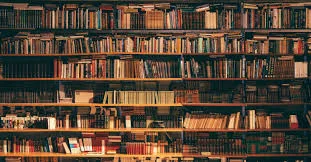New Delhi, 2 August — The quiet act of reading remains a powerful tool in shaping the human mind. Scholars, psychologists, and historians agree: the written word has nurtured thought, culture, and consciousness for centuries—and continues to do so.
“Reading is not just about consuming information; it’s an intimate dialogue with ideas,” said Dr. Neha Vashisht, a cognitive psychologist at Delhi University. “It engages memory, language, emotion, and critical thinking—all at once.”
Since the earliest days of human civilization, the written word has been central to knowledge transmission. From Sumerian clay tablets to the hand-copied texts in Nalanda and Timbuktu, reading enabled the preservation of science, religion, poetry, and philosophy. It allowed thoughts to travel across space and time, sparking revolutions, reformations, and renaissances.
Historians cite the invention of the printing press in the 15th century as a turning point. “Suddenly, literacy was no longer the privilege of priests and kings. Books became accessible, ideas began to flow more freely, and with that came a collective awakening,” said Professor Aftab Hussain, who teaches cultural history in JNU.
In modern times, novels and literature have been shown to deepen empathy and emotional intelligence. A landmark 2013 study published in Science demonstrated that reading literary fiction improved people’s ability to understand others’ mental states—a skill known as theory of mind.
“Reading a novel like To Kill a Mockingbird or The Kite Runner immerses us in lives and worlds far from our own. It trains the imagination to expand its boundaries,” said Vashisht.
Neurologically, reading stimulates brain areas linked to language processing and visualization. Functional MRI scans show that readers mentally simulate experiences as if they were happening in real time—activating the same brain regions as real-life events.
In India, while literacy rates have improved, there is growing concern about declining reading habits among younger generations. Educators point to increased screen time and a shift toward visual, fast-content formats. “We must not confuse access to information with depth of understanding,” warned Professor Hussain.
To counter this, various state governments and NGOs have launched reading promotion campaigns. The Delhi Public Library, for instance, now runs mobile book vans, reading rooms, and weekend storytelling sessions to foster reading habits among children.
Globally, too, reading is being seen as a wellness activity. Bibliotherapy—the use of reading for mental health—is being increasingly prescribed for anxiety and trauma recovery.
“Reading is one of the few acts where the body rests and the mind roams free,” said Dr. Vashisht. “In a fractured world, it connects, reflects, and heals.”
Despite the technological shifts, the printed page continues to hold power. As Indian author Arundhati Roy once said, “The written word is like an anchor. It holds the mind in place when the world feels unmoored.”

